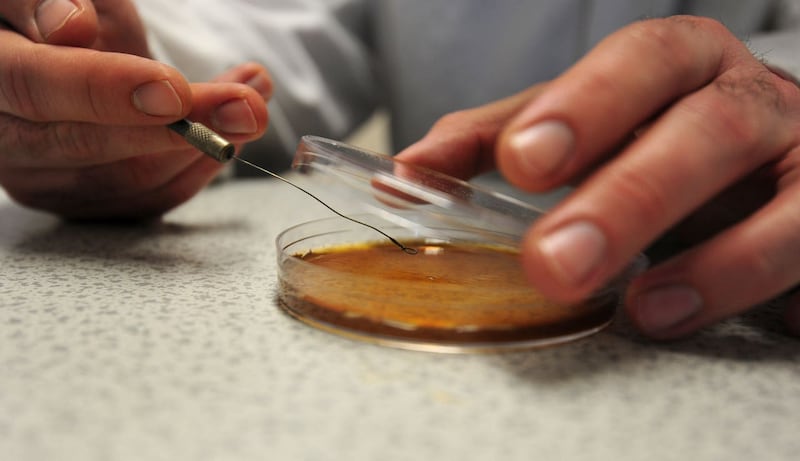Alcohol-producing microbes that live in the gut may cause liver damage – even in people who do not drink, research suggests.
Scientists have found a link between gut bacteria that produce large amounts of ethanol in the body and non-alcoholic fatty liver disease (NAFLD) – caused by a build-up of fat in the liver due to reasons other than alcohol.
They believe the findings, published in the journal Cell Metabolism, could help develop a method for early diagnosis and treatment of the disease.
The researchers based in China say they discovered the association between gut bacteria and NAFLD while examining a patient with severe liver damage.
Follow-up tests on 91 study participants and further experiments on mice helped them identify the bacteria strain responsible for generating substantial amounts of alcohol in the gut.
Lead author Jing Yuan, of the Capital Institute of Pediatrics in Beijing, China, said: “We were surprised that bacteria can produce so much alcohol.
“When the body is overloaded and can’t break down the alcohol produced by these bacteria, you can develop fatty liver disease even if you don’t drink.”
One in three people in the UK is estimated to have early-stage NAFLD while 5% of adults have NASH (non-alcoholic steatohepatitis) – a more advanced form of NAFLD where the liver already has some scarring, according to the British Liver Trust.

Its cause remains unknown but experts say those who smoke, are obese or overweight, have type 2 diabetes, high blood pressure and high cholesterol are at higher risk of developing the disease.
Mr Yuan and his team examined a patient with a rare condition called auto-brewery syndrome (ABS) – which causes intoxication without drinking alcohol. ABS occurs when the body turns sugary and starchy foods into alcohol and can be difficult to diagnose.
The condition has been associated with yeast infection – which can produce alcohol in the gut and lead to drunkenness – but the researchers say they were surprised to find yeast was not the cause.
Mr Yuan said: “We initially thought it was because of the yeast, but the test result for this patient was negative.”
Tests on the patient’s faeces revealed he had several strains of a bacteria known as Klebsiella pneumonia (K. pneumonia) in his gut.
K. pneumonia is a common type of gut microbe but the researchers said the strains found in their patient produced at least four times more alcohol compared to the samples in healthy people.
To investigate further, the team extracted gut bacteria from 43 NAFLD patients and 48 healthy people.
Results showed 60% of NAFLD patients had K. pneumonia in their gut that produced medium-to-high levels of alcohol, while only 6% of healthy test subjects carried these strains.
To find out if K. pneumonia would cause a build-up of fat in the liver, the scientists isolated the strain from the ABS patient and fed it to germ-free mice for three months.
These mice started to develop fatty liver after the first month and their livers showed signs of scarring – a sign of long-term liver damage – by the end of the second month.
The progression of liver disease in these mice was comparable to that of mice fed with alcohol, the researchers said.
Mr Yuan said: “NAFLD is a heterogeneous disease and may have many causes. Our study shows K. pneumonia is very likely to be one of them.
“These bacteria damage your liver just like alcohol, except you don’t have a choice.”
Commenting on the research, Derek Mann, professor of hepatology at Newcastle University who was not involved in the study, said: “The study is certainly very well carried out and may be very relevant to human disease.
“There has been a lot of interest in the fact that patients with NAFLD often have an overgrowth of bacteria in their small intestine, so if these bacteria include microbes that can produce large amounts of alcohol then that would provide a ‘second hit’ to the liver, the first hit being the fat present in the liver which itself can cause liver damage.
“However, the study is mouse-based and as such the findings will need to validated in humans before any clinical avenues might be considered.”








